Situated on the frontlines of the climate crisis, fishers in The Bahamas downright depend on healthy oceans; not just for their daily sustenance, but also for their livelihoods, as their catch is often sold into local, national and global markets. However, in recent decades overfishing has spurred conservation mandates like no-take zones and closed seasons to help stocks recover, which is sometimes met with resistance.
At the Perry Institute for Marine Science, we aim to bridge the gap between the fishing community and conservationists by engaging fishers in our work. That’s why we hosted a virtual documentary screening exclusively for Bahamian fishers last week. Participants included representatives from the National Fisheries Association of The Bahamas, Bahamas Commercial Fishers Alliance, Andros and San Salvador.
The watch party showcased the latest research on the status of fish spawning aggregations throughout the Caribbean with a powerful call-to-action for fishers, marine resource managers and scientists to work together to save these vulnerable species that support ecosystems, fisheries and tourism. This virtual gathering not only provided a platform for local fishers to see what’s been done around the Caribbean, but also an opportunity to share their perspectives about fishery regulations and conservation challenges in The Bahamas.
“I’ve relied on [PIMS’] research on a number of occasions and we appreciate the effort of you sharing it with us,” Adrian Laroda said, president of The Bahamas Commercial Fishers Alliance. “For a long time, this information was gathered and not presented to the stakeholders and the fishing community.”
The featured short documentaries, Fisher2Fisher Advice: Fish Smart and Nassau Grouper Against the Clock, aimed to inspire people to fish smarter, especially when it comes to the Caribbean-wide decline of several important reef fish, like groupers, snappers and jacks, which form aggregations to breed. Produced by Ana Salceda of BelugaSmile Productions for the Western Central Atlantic Fishery Commission Spawning Aggregations Working Group, both videos showcased a diverse array of fishers from several Caribbean nations and emphasized the need to get fishing communities on board with science-backed regulations.
“We’d love to have more fishers be involved in our research and help us better manage the species that aggregate to spawn or breed,” said Dr. Krista Sherman, senior scientist at the Perry Institute. “We’re keen to work with those that know our oceans very well – the fishers – because they also have a vested interest in protecting their livelihoods.”
The documentaries also amplified the need to protect the “breeders;” that is, the big fat fecund fishes that will sire the next generation of fish and ultimately put seafood on our plates for years to come.
Nassau grouper, in particular, have declined by more than 80% since 1980 and in some parts of the Caribbean have become locally extinct. The leading cause for the Nassau’s decline? Targeted and exploitative fishing practices at spawning aggregation sites.
As you can imagine, if enough individuals are wiped out during an aggregation event, our seafood stocks become less and less stable. Eventually, our oceans run out of food and our fishers lose their livelihoods.
“All fishermen understand we need to have a measure of conservation, we’re not here to kill every fish in the sea,” said Adrian LaRoda. “But we need to be able to go out and work,” he added. “We don’t ever want to put fishermen in a situation where it’s so dire they consider poaching.”
Indeed, the group emphasized that the government needs to provide alternatives to help subsidize their livelihoods when they implement new restrictions, especially closed seasons for multiple species at the same time. Examples discussed included alternative fisheries, minimum and maximum size limits and quotas to regulate their catch without full-blown closed seasons.
“[Without restrictions] it’s a feast today, famine tomorrow,” said Angelica Mendez, emphasizing the severity of the decline of commercially important reef fish in the Caribbean. Mendez, the Commercial Fisher President of the Guatemalan Fishers Network, was featured in the documentary Fisher2Fisher Advice: Fish Smart. Her organization is dedicated to protecting marine resources and the environment through creating strategic alliances among local fishers.
But we haven’t lost hope for our breeders and neither should you!
If you’re interested in saving our big fat fecund fishes, share this blog with your networks. Each of us has a role to play, and we can take action to ensure we don’t lose the iconic and other highly-valuable groupers and snappers.
- Respecting closed seasons and other fishery regulations
- Choosing sustainably caught seafood (e.g. mahi mahi/dolphin, lionfish, grunts, jacks)
- Donating to support our fisheries conservation research
- Speaking up! If you see something wrong, say something! REPORT issues to either the Department of Marine Resources, the Royal Bahamas Defense Force or the Royal Bahamas Police Force
As for the short documentaries, we’ll be showcasing them here as soon as they’re made available to the public! Sign up for our newsletter to be the first to know!
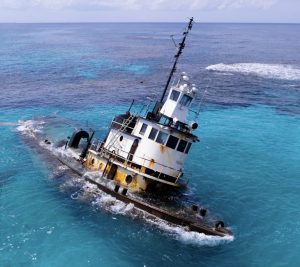
A Year Later, Stranded Tug and Barge Still Scars Reef in Fowl Cays National Park–Residents Demand Accountability
A haunting aerial view of the grounded tug and barge in Fowl Cays National Park—still embedded in coral a year later, a stark reminder of the cost of inaction. Photo
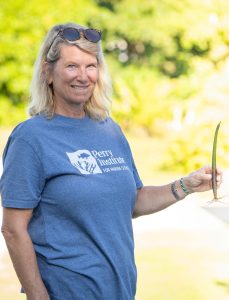
Women Leading Mangrove Restoration in The Bahamas
Have you ever wondered who’s behind the scenes saving our environment, right in our own backyard? Picture a group of energetic, determined women rolling up their sleeves and diving into
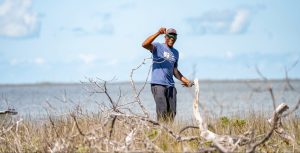
Rewilding the Marls of Abaco: PIMS Plants 100,000 Mangroves and Counting in 2024
As the afternoon sun bathes the Marls of Abaco in golden light, Bahamian boat captain Willis Levarity–locally known as “Captain to the Stars”–stands ankle-deep in soft, warm mud. A broad
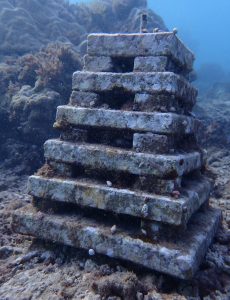
Unveiling Coral Reef Biodiversity: Insights from ARMS Monitoring Structures
An ARM teeming with new coral recruits and a diversity of marine life, highlighting reef recovery and biodiversity Understanding Coral Reef Biodiversity Most new PhDs in the natural sciences move

7 Key Takeaways from COP16: Confronting Coral Reef Challenges in a Changing Climate
United #ForCoral: Experts, advocates, and leaders from across the globe join forces at COP16 for the #ForCoral conference, hosted by the International Coral Reef Initiative. Together, they’re driving urgent action
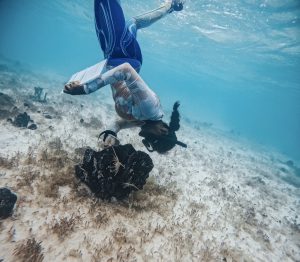
Fieldwork Wrap-Up: Strengthening MPA Management in The Bahamas
Marine protected areas (MPAs) are critical tools in the conservation of marine species and habitats, safeguarding reefs, seagrasses, and mangroves that provide vital ecosystem services to coastal communities. At the




